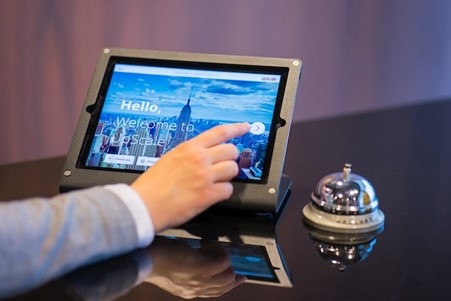David Tessier is an entrepreneur in the hospitality and gaming industry. With hospitality playing an integral role in the economy, these businesses are constantly facing changing regulations and increasing number of challenges, while the industry navigates the post-pandemic world. David Tessier explains how the hospitality industry trends are changing in the near future, ensuring these businesses stay relevant and competitive.
Businesses are in constant fluctuation, and the changes that occur don’t happen without calculated research as to what the world is in demand for. These changes can be seen in stores, banks, and of course, in any corporation that places hospitality in importance.
Hotels and travel locations are not immune to the need for metamorphosis, outside of aesthetic trends, unforeseen conditions such as the COVID-19 pandemic increase the demand for change and “keeping up” with modern times.
David Tessier explains that later in 2022 and in early 2023, one may see any combination of the following trends making their presence known in the hospitality world.
Sustainability
With concerns for the condition of the planet at an all-time high, more and more companies are heeding the call for sustainability says David Tessier. Are products being smartly sourced? Is the running of the business adding to air pollution?
Hotels, bed and breakfasts, and other lodging companies are keeping concerns like this in mind when it comes to running their businesses. Some businesses are leaning into their dedication into environmental conservation in ways that larger hotel franchises are inspired by says David Tessier.
A gray water treatment system, as well as reducing the amount of waste made by the hotel in all ways possible are only some of the ways hospitality-based companies can keep sustainability in mind. In larger hotels, buying farm-fresh ingredients daily is not only better for the planet, but can broaden their customer range significantly.
Virtual kitchens are also on the rise in the hotel world. Instead of having an in-house restaurant, guests will get their food delivered directly to their rooms. David Tessier says that this cuts down the amount of energy needed to run a kitchen and restaurant setting and allows the establishment to simply use what they need, reducing both energy and waste.
Digitized Experiences
As the world reopens after a period of normalized isolation, there’s a large customer base who still feel wary or unsure about jumping back into the potential stresses that surround travel or general socialization. Or, they may have realized how much they value introverted experiences explains David Tessier.
Catering to customers who may not want the “hospitable” part of hospitality may seem difficult, but it’s something that hotels in Japan seem to have down to a point. Not only that, but it’s making them serious money too according to David Tessier.
The trouble with automated experiences is their costliness, which makes digitizing something to be seen in larger franchises rather than a mom-and-pop BnB. In a lot of these places, guests are “checked-in” through smartphone, QR code, or even AI – meaning they don’t need to interact with a single human before getting into their rooms explains David Tessier.
Some hotels are also looking to facial recognition software, as well as fingerprint scanning, to confirm the identity of the guest (though this process may be a bit more pricy).

Personalized Stay
However, if a traveler or customer does value the human experience, and not only want to be seen, but feel seen- there are some trends on the up and up that cater to them as well.
Specifically, making their experience at the hotel as customizable as possible. Where there was once an automated welcome email that was identical to every patron, now involves a personalized welcome message that truly makes the customer feel special.
This will be especially great for repeat customers explains David Tessier. Hotels can take a look at what events the customer took advantage of during their previous stays (booked a spa, reserved the tennis court, etc.), and offer them discounts to the things they want to do.
For new travelers, simply receiving a telephone call welcoming them into the hotel or resort could make a world of a difference.
Flexibility
David Tessier says that too often, the general public gets turned off by the sight of a business being “under construction”. The hardware, safety cones, and exposed gear can be gaudy to guests, and may even hinder them from booking again.
Flexibility is key. More and more hotels are finding minimalist furniture to be a necessity, especially with general aesthetics being under constant fluctuation.
But not only is the style of furniture important, but rather its adaptability. A board room should have the ability to change into a multipurpose room, if need be, and those in the hospitality world are taking that necessity into account. The same goes for the furniture in a hotel room.
An extra desk can be added or taken away. A rollaway bed, for example, can tuck into the room with a simple rearrangement rather than being awkwardly settled in. Multifunctionality makes a hotel accessible and adaptable, cutting down the need for serious remodeling tenfold.






